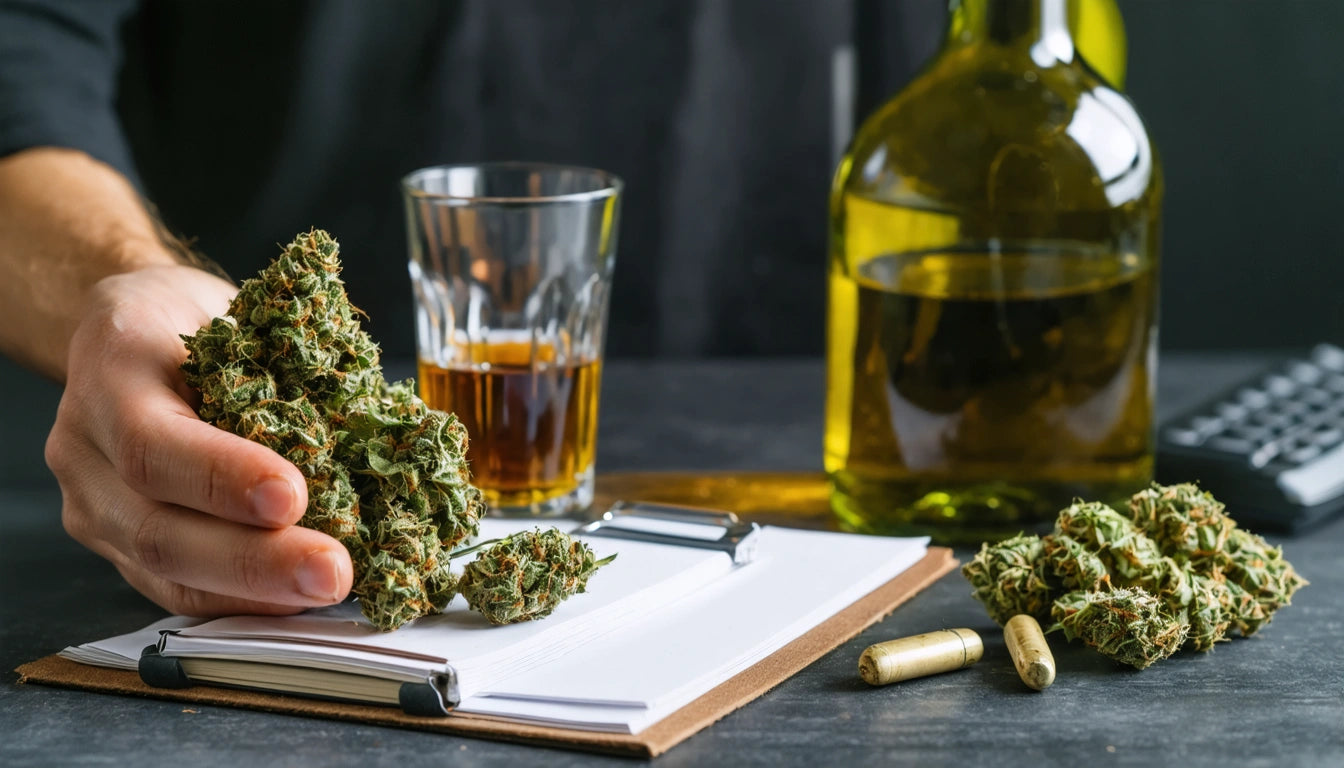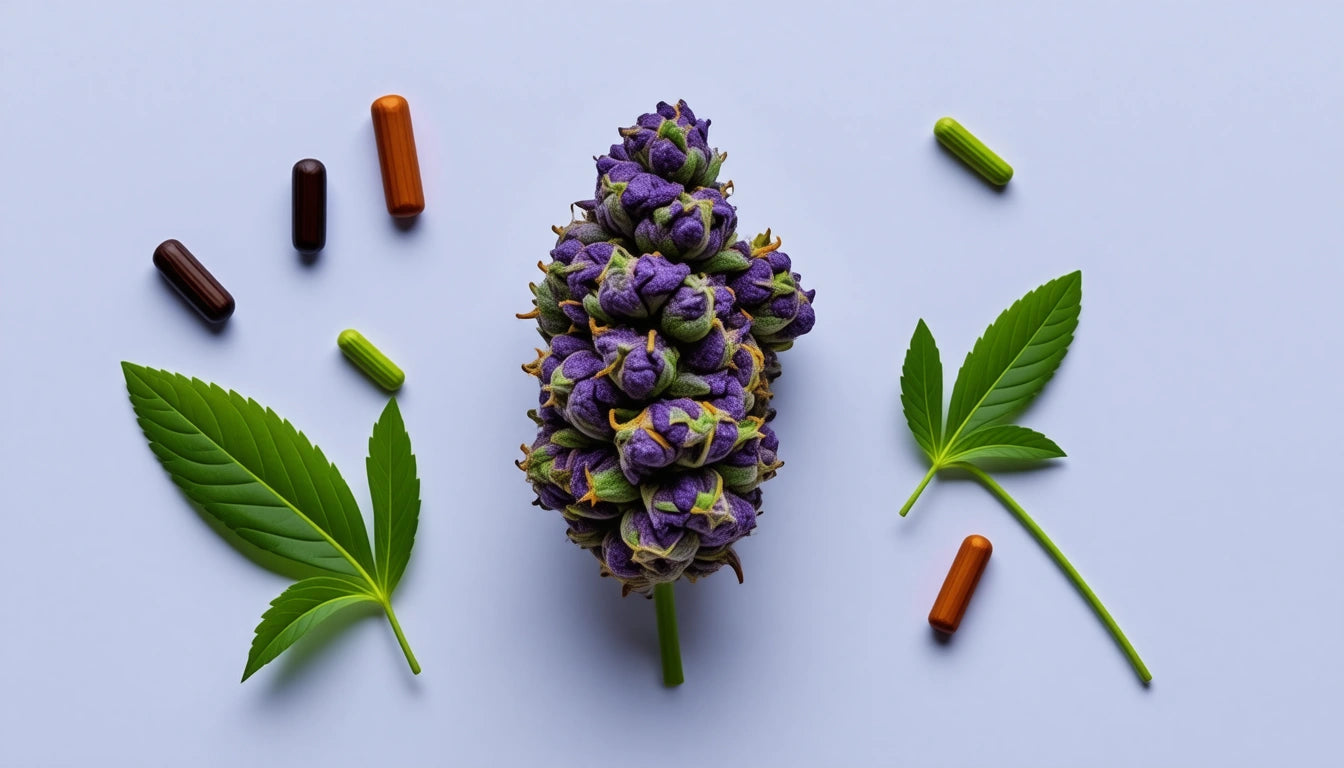Can Marijuana Alleviate Symptoms of Alcohol Withdrawal?
Alcohol withdrawal can be a challenging and potentially dangerous process for those dependent on alcohol. As cannabis legalization expands across the country, many are asking: does marijuana help with alcohol withdrawal? This question reflects growing interest in alternative approaches to managing withdrawal symptoms beyond traditional pharmaceuticals.
Understanding Alcohol Withdrawal
Alcohol withdrawal syndrome occurs when heavy, prolonged drinking is suddenly reduced or stopped. The central nervous system, having adapted to alcohol's depressive effects, becomes hyperactive without it.
Common alcohol withdrawal symptoms include:
- Anxiety and restlessness
- Insomnia and sleep disturbances
- Nausea and vomiting
- Tremors and shakiness
- Elevated heart rate and blood pressure
- In severe cases, seizures and delirium tremens (DTs)
Unlike cannabis withdrawal, which is generally milder, alcohol withdrawal can be life-threatening and often requires medical supervision.
Potential Benefits of Cannabis for Withdrawal
Some evidence suggests cannabis might help address specific alcohol withdrawal symptoms. The potential benefits include:
Anxiety and Agitation Reduction
CBD and some THC formulations may help calm the heightened anxiety that commonly occurs during alcohol withdrawal. This anxiolytic effect could potentially reduce the psychological distress that often leads to relapse.
Sleep Improvement
Indica-dominant strains and CBD products might help with the insomnia that frequently accompanies withdrawal. Improved sleep quality could support overall recovery and reduce symptom severity.
Nausea Control
Cannabis has well-documented antiemetic properties that could help manage the nausea and vomiting often experienced during alcohol withdrawal, similar to how it helps with other conditions causing nausea.
Risks and Considerations
Despite potential benefits, important risks must be considered when asking if pot helps with alcohol withdrawal:
Substitution Concerns
There's a risk of simply substituting one substance for another. As discussed in this comparison of alcohol and cannabis, while marijuana is generally considered less harmful than alcohol, dependency can still develop.
Interaction with Medications
Cannabis may interact with medications commonly prescribed during alcohol detoxification, potentially reducing their effectiveness or causing adverse effects.
Psychological Complications
For some individuals, particularly those with underlying mental health conditions, cannabis can increase anxiety or paranoia, potentially worsening withdrawal symptoms rather than alleviating them.
Research on Cannabis and Alcohol Withdrawal
Scientific research specifically examining if weed helps with alcohol withdrawals remains limited but growing:
Some observational studies suggest that cannabis users may experience less severe alcohol withdrawal symptoms. However, controlled clinical trials specifically examining cannabis for alcohol withdrawal management are still scarce.
Research from the University of British Columbia found that some alcohol-dependent individuals reported using cannabis to manage their withdrawal symptoms, with varying degrees of self-reported success. These individuals often stored their cannabis products in secure storage containers to maintain potency during their withdrawal management period.
Consumption Methods for Symptom Management
For those considering whether marijuana helps with alcohol withdrawal symptoms under medical supervision, consumption method matters:
Oral Products
Tinctures, oils, and edibles provide longer-lasting effects that may help with extended symptom relief, particularly for sleep disturbances. However, onset is delayed compared to inhalation methods.
Inhalation
Smoking or vaporizing cannabis provides faster onset of effects, which may be beneficial for acute symptoms like sudden anxiety or nausea. However, smoking introduces respiratory concerns.
Topicals
CBD-infused topicals might help with muscle aches and pains associated with withdrawal but won't address psychological symptoms.
Harm Reduction Approach
Some addiction specialists are exploring cannabis within a harm reduction framework, similar to approaches discussed for opiate withdrawal. This perspective acknowledges that:
- Complete abstinence may not be immediately achievable for everyone
- Reducing alcohol consumption, even if cannabis is used temporarily, may decrease overall harm
- Cannabis may present fewer risks than alcohol for some individuals
This approach remains controversial in traditional addiction treatment circles, where abstinence from all substances is often the goal.
Future Directions in Cannabis-Based Interventions
As research evolves, more targeted approaches may emerge. Specific cannabinoid formulations, rather than whole-plant cannabis, might offer more precise therapeutic benefits without unwanted effects. CBD-dominant products with minimal THC show particular promise for anxiety reduction without intoxication.
While the question











Leave a comment
All comments are moderated before being published.
This site is protected by hCaptcha and the hCaptcha Privacy Policy and Terms of Service apply.